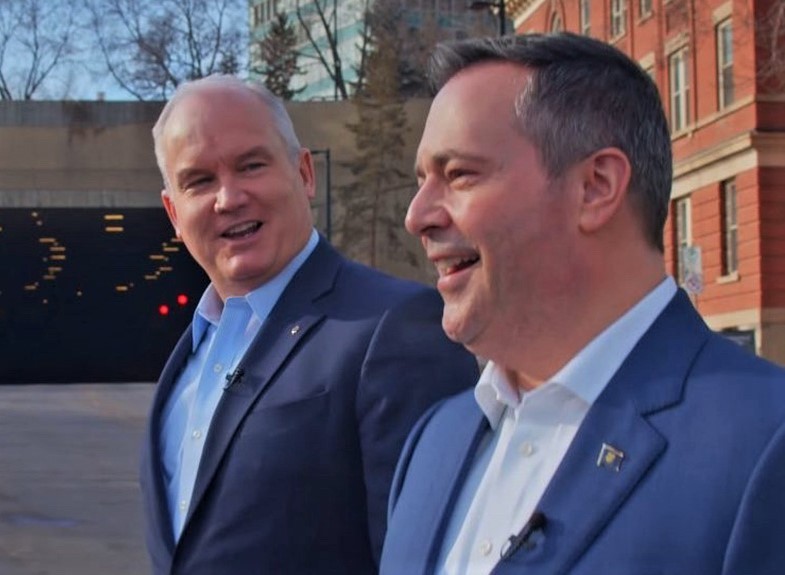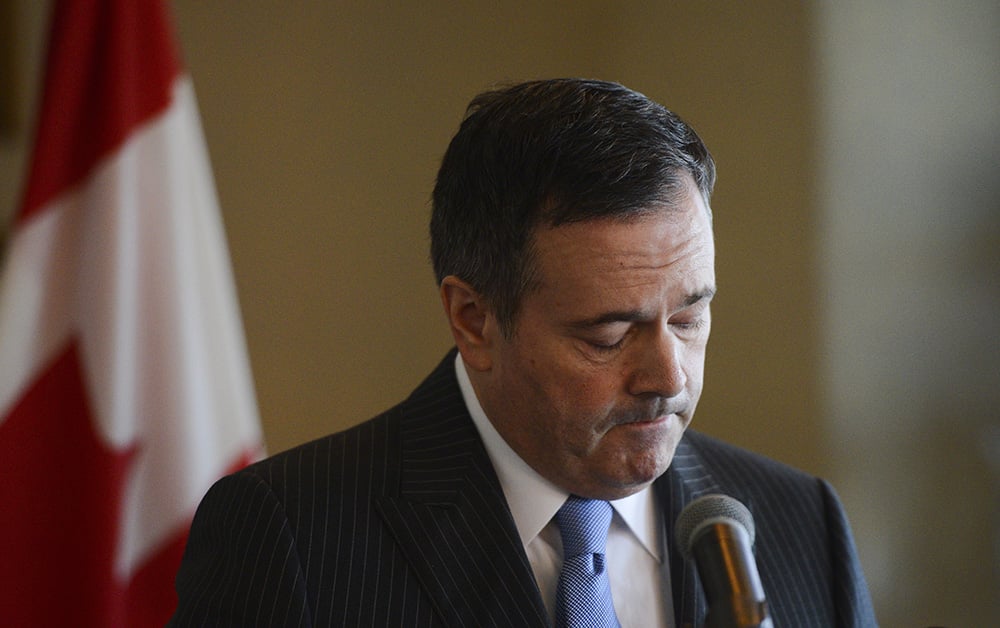Canadians worried about the survival of the country had cause for relief Thursday morning with news the Supreme Court of Canada had ruled 6-3 the federal government is entitled to impose a national carbon-pollution pricing system — in other words, to act like the government of Canada.
Had the court done what a cabal of climate-change-denying provincial Conservative premiers had hoped to achieve, one almost wonders what the point would have been of remaining a confederation.
Thursday’s ruling settles that question for a generation, if not longer, at least as far carbon pricing goes. Quite possibly for a lot more than that, too.
Even Alberta Premier Jason Kenney crankily admitted at a morning news conference that “there’s no court we can appeal this to,” while vowing, naturally, to make a political fight of it.
It remains to be seen how that will work out, but it seems likely “The Resistance,” as Canada’s conservative leaders used to like to think of themselves back when they were riding a little higher, will try to think up more taxpayer-funded mischief as long as there is a Liberal government in Ottawa.
Since the case was specifically about the federal government’s right to impose measures to curb the production of carbon to slow or reverse global climate change, Canadians worried about the survival of the planet have cause to celebrate, too. The bad news is that it will take a lot more than a modest carbon tax to move ahead on that important issue, on a national or planetary scale.
The long-shot strategy of the Conservative governments of Alberta, Saskatchewan and Ontario, which referred the constitutionality of the Greenhouse Gas Pollution Pricing Act of 2018 to their respective courts of appeal, was torn from the pages of the Book of Donald Trump, whence most Canadian Conservatives get their inspiration.
Since the federal legislation put a price on carbon and allowed it to be imposed in provinces that took inadequate measures on their own, they argued this interfered with the constitutional jurisdiction of provinces over natural resources, and that they should be able to tailor their environmental policies to their own circumstances.
In practice this meant, as with the former U.S. president, always saying they were about to come up with something better, and rarely actually coming up with anything at all, or at least only as little as possible.
When the three provincial appeal courts produced a split decision, Alberta’s siding with the Conservative position, the case found its way to the Supreme Court.
Six Supreme Court justices Thursday concluded that since global warming is an actual thing, and moreover a thing that causes harm beyond provincial boundaries, it is appropriate for the federal government to deal with it under the “Peace, Order and Good Government” clause of the Constitution.
If you wonder why the federal government’s lawyers didn’t rely on the extensive taxation power granted to Ottawa in the Canadian Constitution since the passage of the British North America Act at Westminster in 1867, that is explained in a useful plain-language primer published Thursday by the Supreme Court.
“The majority noted that the term ‘carbon tax’ is often used to describe the pricing of carbon emissions,” it said. However, they said this has nothing to do with the concept of taxation, as understood in the constitutional context. As such, they also concluded that the fuel and excess emission charges imposed by the Act were constitutionally valid regulatory charges and not taxes.
Upon the announcement of the decision in the reference case, supporters of the Conservative governments of Alberta, Saskatchewan and Ontario — with Manitoba, New Brunswick and Quebec making supportive noises — immediately retreated to proclaiming that while they acknowledged the Court’s decision, that doesn’t make the law right.
They pledged to fight on against carbon taxes — the easiest corner for Conservatives to retreat into nowadays whether they’re outright climate-change deniers or merely climate-change-skeptical opportunists, never mind that the idea was originally championed by the Canadian right because of its market-based approach.
Conservative Opposition Leader Erin O’Toole vowed if he ever gets power to dump the law, which he termed a “Liberal carbon tax” while regurgitating old conservative claims environmental action kills jobs and puts Canada at a competitive disadvantage.

Channeling Trump, he promised “Canada’s Conservatives will put forward a clear and comprehensive climate plan focused on reducing emissions.” Believe it when you see it.
But until Conservatives actually have a plan to lay on the table and contrast with that of Prime Minister Justin Trudeau’s Liberal government, none of this means much.
Premier Kenney trowelled it on with windy statements defending the time and money spent on this long-shot appeal.
He claimed in a news release “a strong majority of Albertans elected this government because of our commitment to repeal the previous government’s carbon tax,” a questionable interpretation of the reasons for the outcome of the 2019 provincial election that brought the United Conservative Party to power.
He also described the Gang of Six as “a coalition of Canadian provinces representing 80 per cent of the Canadian population” — which suggests all their citizens all hold the same opinion — and made the dubious claim the decision “undermines our constitutional system.” He recited tired UCP talking points like “No More Pipelines Law” and “job-killing carbon tax.”
Hinting at the UCP’s strategy at his news conference, Kenney seemed to resist the idea of Alberta collecting its own carbon levy — too much like what the NDP did, presumably. Better to demand the money from Ottawa and then blame it for collecting it, one supposes. ![]()
Read more: Energy, Federal Politics, Environment
















Tyee Commenting Guidelines
Comments that violate guidelines risk being deleted, and violations may result in a temporary or permanent user ban. Maintain the spirit of good conversation to stay in the discussion.
*Please note The Tyee is not a forum for spreading misinformation about COVID-19, denying its existence or minimizing its risk to public health.
Do:
Do not: